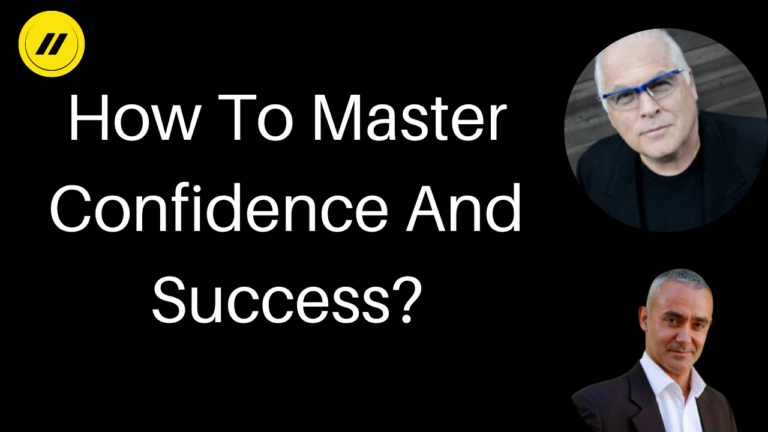Are you stuck wondering how to build confidence to achieve success? and to Banish Imposter Syndrome For Good? In the Positive Personal Power Podcast Phase 2 Episode 8 we dig deep into confidence, ability and success to banish your imposter syndrome for good!
Nathaniel Schooler (co-founder of Imposter Syndrome Awareness Day April 13th discusses this important topic with business leader Steven J Manning!
Join us as we dive deep into the world of confidence, ability, and success, with Best-selling author, entrepreneur, and thought leader Schooler, and Manning — an internationally known business leader, author, public speaker, advisor and marketer of over $47 Billion in commerce — share their lessons, tools and the path and motivation to succeed that are indispensable to all who desire to be!! Let’s embark on this life-changing journey and conquer Imposter Syndrome once and for all!
We explore this important topic and provide you with some tools that will help you manage your inner imposter and build that confidence to succeed.
DEFINITIONS BORROWED FROM SOME VERY SMART PEOPLE, INCLUDING ELIZABETH SCOTT, PhD…
TYPES OF IMPOSTERS
You might have imposter syndrome if you find yourself consistently experiencing self-doubt, even in areas where you typically excel. Imposter syndrome may feel like restlessness and nervousness, and it may manifest as negative self-talk. Symptoms of anxiety and depression often accompany imposter syndrome.
- The Perfectionist. This type of imposter syndrome involves believing that, unless you were absolutely perfect, you could have done better. You feel like an imposter because your perfectionistic traits make you believe that you’re not as good as others might think you are.
- The Expert. The expert feels like an imposter because they don’t know everything there is to know about a particular subject or topic, or they haven’t mastered every step in a process. Because there is more for them to learn, they don’t feel as if they’ve reached the rank of “expert.”
- The Natural Genius. In this imposter syndrome type, you may feel like a fraud simply because you don’t believe that you are naturally intelligent or competent.
- The Super-person. This type of imposter syndrome involves believing that you must be the hardest worker or reach the highest levels of achievement possible and, if you don’t, you are a fraud.
IMPOSTER SYNDROME SYMPTOMS
- Do you agonize over even the smallest mistakes or flaws in your work?
- Do you attribute your success to luck or outside factors?
- Are you sensitive to even constructive criticism?
- Do you feel like you will inevitably be found out as a phony?
- Do you downplay your own expertise, even in areas where you are genuinely more skilled than others?

